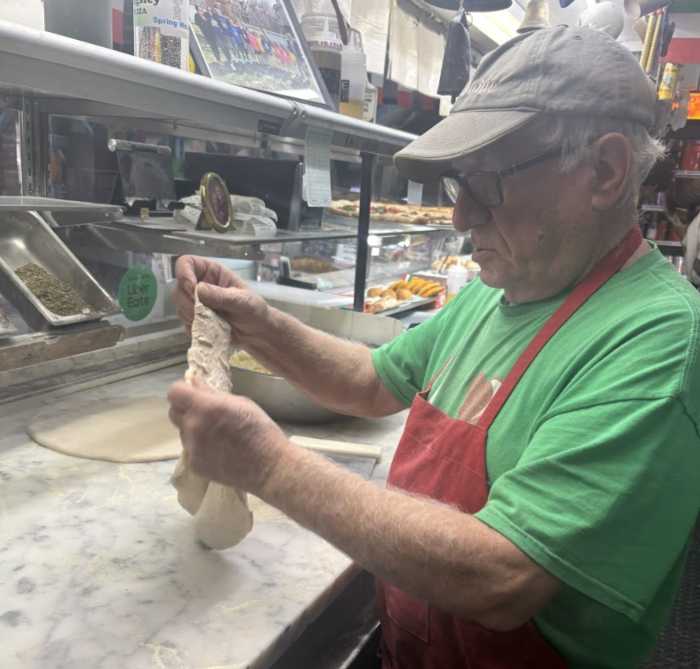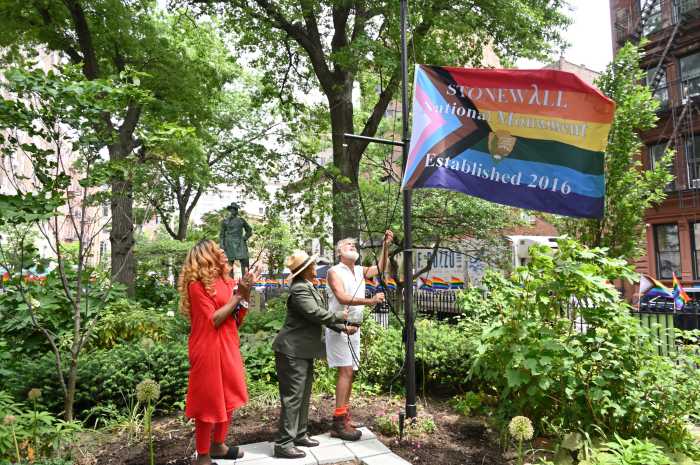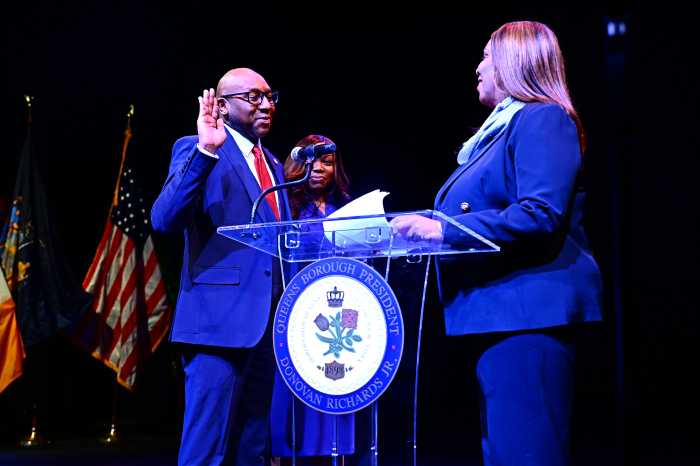In a sweeping decision, Kings County Supreme Court Judge Mark Partnow yesterday ruled that the City of New York violated the U. S. Consitution in the seizure of six central Brooklyn properties, and ordered the city to give them back to their owners, restoring millions of dollars of intergenerational wealth in the black and Latino community.
The city attempted to take all the properties under the Department of Housing Preservation and Development’s (HPD) Third Party Transfer (TPT) program, and in which KCP has been doing an ongoing investigative series.
Under the TPT program, the city seizes properties they deem “distressed,” and give them to the public/private non-profit Neighborhood Restore, who in turn give the property for a nominal fee to a qualified non-profit or for-profit developer. The program was created in the late 1970s, when the city had a large number of abandoned and neglected buildings.
However, with gentrification, these properties, and others in the same program, are now worth millions of dollars in market value. Almost all were completely paid for with no mortgage and located in traditionally black and brown neighborhoods, which are becoming increasingly gentrified.
When the city takes property under TPT, they give no equity to the property owners, who in many of the cases paid thousands of dollars in back taxes and water bills to the Department of Finance, which was never registered as being paid.

Partnow rulings were on six separate property cases that came before his court. Two of the properties – 25 McDonough Street in Bedford-Stuyvesant and 19 Kingsland Avenue in Williamsburg/Bushwick were the subject of several of the KCP stories. The other properties Partnow ruled on were 1055 Bergen Street in Crown Heights, 972 Rutland Road on the Brownsville/Crown Heights border, 315 Harman Street in Bushwick and 463 Classon Avenue in Clinton Hill.
“The City has particularly targeted properties that are owned by minorities. The court recognizes that home ownership is an important means for families to build intergenerational wealth. While the Third Party Transfer Program was intended to be a beneficial program, an overly broad and improper application of it that results in the unfair divestiture of equity in one’s property cannot be permitted,” wrote Partnow in his ruling.
Partnow found several problems with the taking of all these properties including a lack of process in serving property owners that their property was being taken, and that the properties in questions never met the definition of being distressed.
But time and again, in each of the cases Partnow noted the city took properties worth millions of dollars without giving any equity/compensation to the owners.
“The transfer of the Kingsland property to Neighborhood Restore is also unconscionable and shocking in the conscience of the court based on the amount of the City’s lien versus the substantial value of the Kingsland property. In addition, since the Kingsland property is not a distressed property, the taking of it through the Third Party Transfer program would constitute an unlawful taking of private property without just compensation in violation of Kingsland’s HDFC’s constitutional rights under the Takings Clause of the Fifth Amendment of the United States Consitution and article 1, section 7, of the New York State Constitution,” he wrote.

Reaction to the ruling was met with great joy from property owners, civic leaders, community activists and attorneys, who have put in countless hours on the TPT issue, along with other foreclosure-related issues.
“It’s amazing. You hope and pray for an outcome like this. Given the scenario we and a lot of other residents have been put through, it feels real good to have justice served. It validates what we were saying all along,” said Lamaar Jones, whose family has owned the 25 MacDonough Street building since 1968, and which is now worth more than $3 million.
Jones has been fighting since last fall for the deed back to his family’s property that has cost him thousands in lawyers fees.
The ruling also adds muscle to the recently filed federal class action lawsuit, which could cost the city tens of millions of dollars and the return of dozens of properties that were unconstitutionally confiscated.
“When I first looked at the court records in September 2018, I found the basis for the 2017 TPT in rem judgments to be improper; obviously Judge Partnow agrees, having now learned that the City failed to give property owners notice of it’s intent to seize their title and contrived a basis for judgments which in my legal opinion is completely unconstitutional,” said Yolande Nicholson, president of the New York State Foreclosure Defense Bar, and the driving force behind the class action lawsuit.
“Most of this could be easily resolved by our Mayor reining in HPD’s leadership, and taking the lead on addressing the foreclosure and housing crisis facing median-income working families in New York City. The Court’s reversals recognizes that the government should not interfere with property owners’ rights where basic elements of due process are not followed, or where equity dictates the upholding of fundamental consumer rights and protections. The Court’s reversals restores residences at which affordable housing is already the norm,” she added.
These six properties now join 1217 Dean Street in Bedford-Stuyvesant, in their reversals. Ms. Marlene Saunders, 74, officially got the deed back to that property back in January after four months of fighting with city agencies over ownership of her 3-story brownstone.






